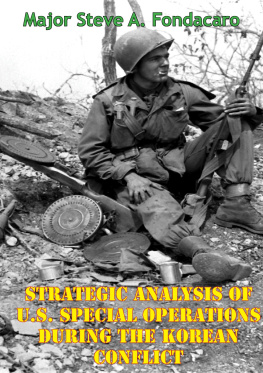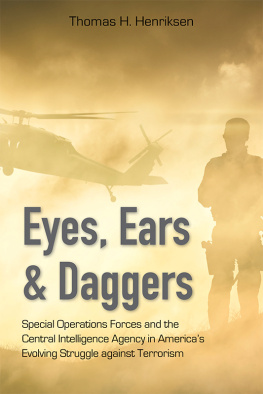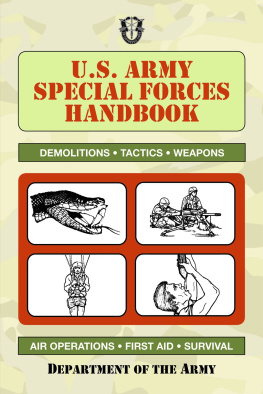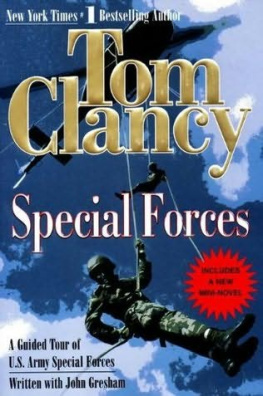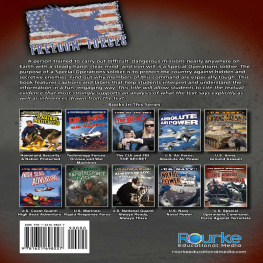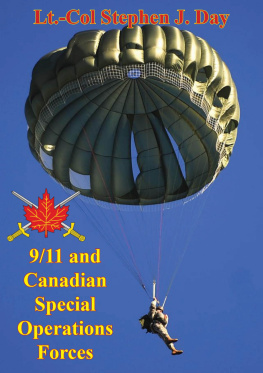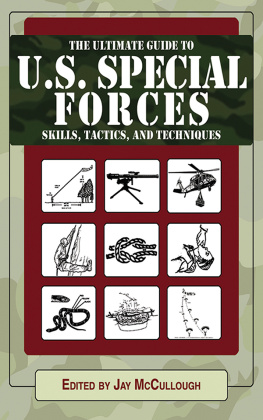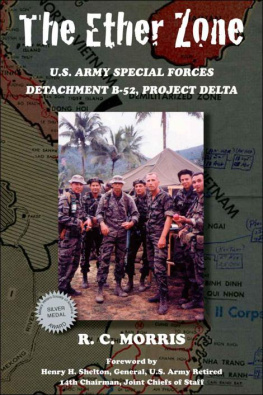Solving the
People Puzzle
Solving the
People Puzzle
Cultural Intelligence and
Special Operations Forces
Dr. Emily Spencer
Copyright Dr. Emily Spencer, 2010
All rights reserved. No part of this publication may be reproduced, stored in a retrieval system, or transmitted in any form or by any means, electronic, mechanical, photocopying, recording, or otherwise (except for brief passages for purposes of review) without the prior permission of Dundurn Press. Permission to photocopy should be requested from Access Copyright.
Copy Editor: Cheryl Hawley
Design: Jennifer Scott
Printer: Marquis
Library and Archives Canada Cataloguing in Publication
Spencer, Emily
Solving the people puzzle : cultural intelligence and special operations forces / Emily Spencer.
Includes bibliographical references and index.
ISBN 978-1-55488-750-7
1. Cultural awareness. 2. Cultural competence. 3. Intercultural communication. 4. Special forces (Military science). I. Title.
U163.S64 2010 | 355.343 | C2009-907471-0 |
1 2 3 4 5 14 13 12 11 10
We acknowledge the support of the Canada Council for the Arts and the Ontario Arts Council for our publishing program. We also acknowledge the financial support of the Government of Canada through the Canada Book Fund and The Association for the Export of Canadian Books, and the Government of Ontario through the Ontario Book Publishers Tax Credit program, and the Ontario Media Development Corporation.
Care has been taken to trace the ownership of copyright material used in this book. The author and the publisher welcome any information enabling them to rectify any references or credits in subsequent editions.
J. Kirk Howard, President
Printed and bound in Canada.
www.dundurn.com
Dundurn Press
3 Church Street, Suite 500
Toronto, Ontario, Canada
M5E 1M2
Gazelle Book Services Limited
White Cross Mills
High Town, Lancaster, England
LA1 4XS
Dundurn Press
2250 Military Road
Tonawanda, NY
U.S.A. 14150
Foreword
I am delighted to introduce Solving the People Puzzle. By examining the topic of cultural intelligence (CQ) from the standpoint of special operations forces (SOF), this book goes to the heart of operations in the contemporary security environment in several important ways. First, it focuses on the human element, which is, after all, the core strength of SOF the world over. Second, it speaks directly to the primary, and pivotal, component of the SOF mantra of think, move, communicate, shoot. Finally, this volume captures the SOF emphasis on fundamental conceptual philosophies such as the indirect approach and integrated operations.
The application of CQ defined as the ability to recognize the shared beliefs, values, attitudes, and behaviours of a group of people and, most importantly, to apply that knowledge toward a specific goal, should prove to be a most welcome formalization and addition to the SOF skill set. After all, SOF is a strategic asset, and its operations are both intelligence-driven and human-centric. As such, it is absolutely vital that SOF operators, enablers, and leadership fully utilize CQ to maximize operational effectiveness and mission success.
It has long been acknowledged that the greatest strength that SOF possesses is not its technologically advanced equipment, platforms, or weaponry, but rather its personnel. In this vein, CQ provides another tool to build the cognitive strength and effectiveness of our SOF men and women in the current ambiguous, uncertain, volatile, and ever-changing security environment. It represents a force multiplier that will assist in potentially alleviating the need for kinetic solutions; however, should that not be possible, it also enables SOF to ensure that its actions are as surgically precise as possible. In the end, it is an important enabler in ensuring that SOF consistently do more good than harm to achieve its nations aims.
Solving the People Puzzle is an important addition to the scholarly body of knowledge on military affairs. Such knowledge and understanding are essential for the proper conduct of national security affairs, and education is the key to success in todays challenging environment. This means, as the book also rightly stresses, a reliance on more than just equipping and training soldiers to fight with the most advanced technology and weapons systems available. It requires military personnel who are well trained and equipped, but also well educated. It demands individuals who are not only capable, but who thrive in ambiguity, complexity, and change.
I therefore recommend this book to all military personnel, whether SOF or conventional, as well as those who interact with, or are interested in, the profession of arms. It provides insight and an important philosophical, if not doctrinal, foundation to CQ that must be embraced by SOF, as well as by all military professionals, to ensure that we provide our men and women, and the nation itself, with the greatest chance of success in operations in a very challenging security environment now and into the future.
Joel Sokolsky, Ph.D
Principal
Royal Military College of Canada
Acknowledgements
First, I wish to thank the men and women of the Canadian Forces. Without the courage, tenacity, and sacrifice of these individuals there would be no need for this type of scholarship. Their efforts on behalf of all Canadians are truly noteworthy.
In particular, however, I would like to take this opportunity to sincerely thank Colonel Bernd Horn, the former deputy commander, Canadian Special Operations Forces Command (CANSOFCOM), for his generous feedback and guidance throughout the writing process. This book would not have been possible without his support and encouragement. I know that I am a better person for this experiencethank you!
Finally, I wish to thank the design and editing team, specifically Cheryl Hawley at Dundurn Press, for turning the raw manuscript into the polished volume you have before you.
Introduction
Militaries spend enormous amounts of money, time, and energy ensuring that their troops are trained on weapon systems, vehicles, and equipment. They spend small fortunes on preparatory exercises and training to test tactics, techniques, and procedures (TTPs); drills; and general soldier proficiency and effectiveness should they need to exercise force protection, demonstrate a deterrent posture, or actually fight during an operation. This preparation and expenditure is only prudent. It makes perfect sense, particularly when lives are at risk. It is, after all, just due diligence. Moreover, it better positions an organization to be successful on operations. However, what makes less sense is that, comparatively speaking, very little effort, if any, is spent solving the people puzzle.


